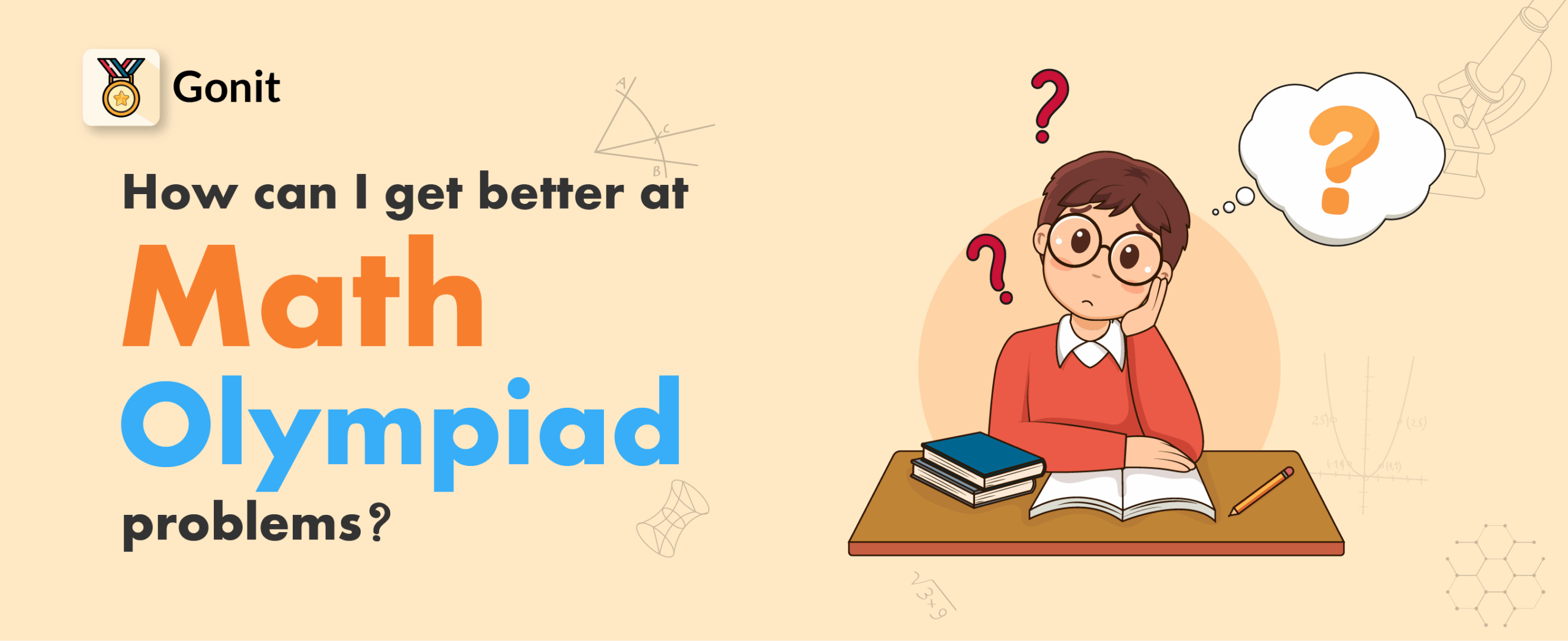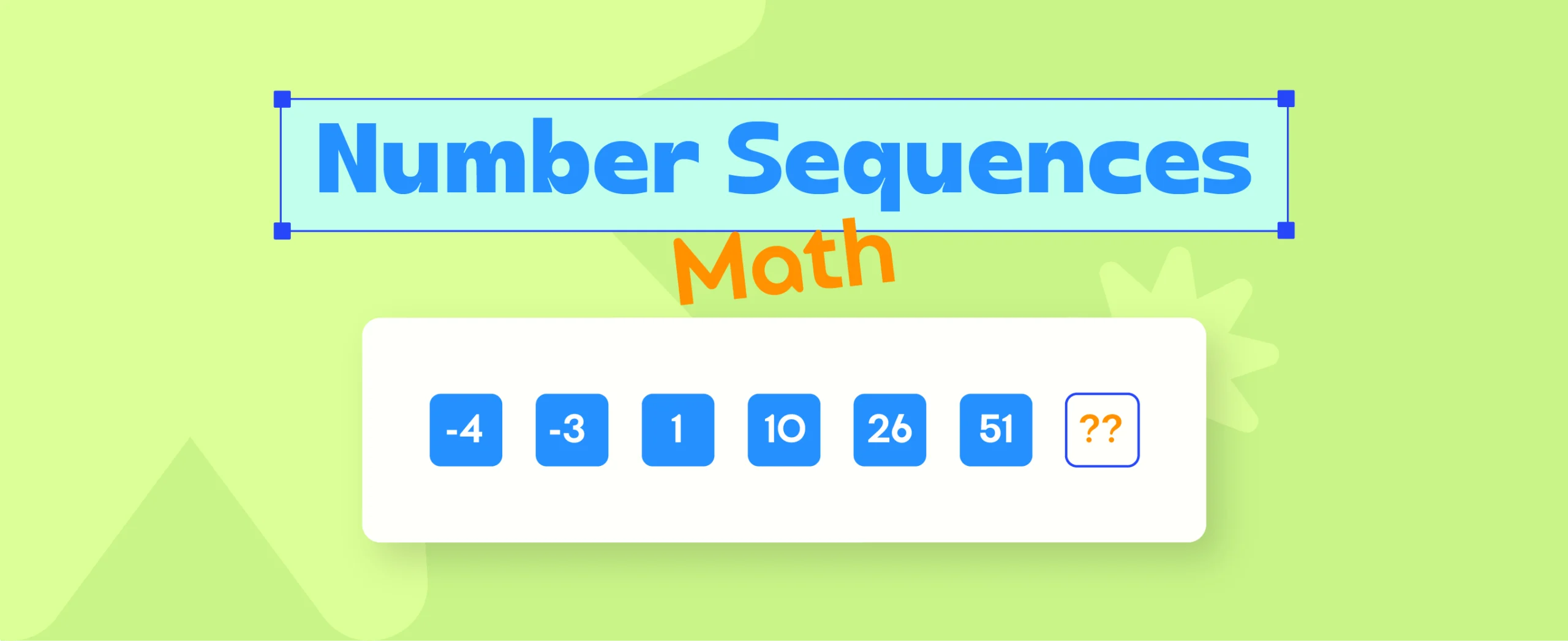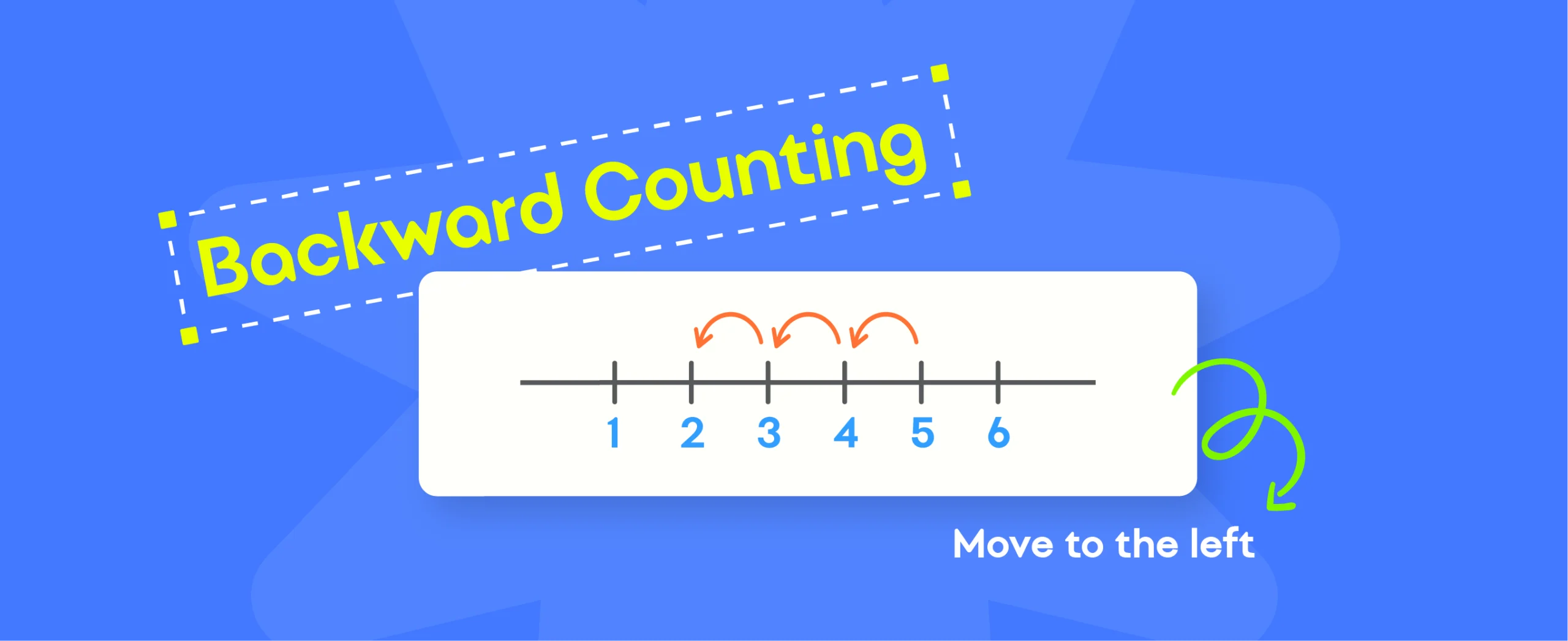Best Math Olympiad Problem Solving Questions
“To get better at solving Math Olympiad questions, focus on consistent problem-solving practice and concept mastery. Use the Gonit app to explore topic-wise problems, hints, and step-by-step solutions that strengthen logical thinking and analytical skills.”
Have you ever stared at a math problem for hours, only to realize it’s not testing what you know, it’s testing how you think?
That’s the magic of Math Olympiad questions: they’re not about memorizing formulas but about creative reasoning, logical thinking, and strategic problem-solving.
To excel in Math Olympiads, you need more than strong math skills, you need the right mindset, smart strategies, and consistent practice.
This guide will show you exactly how to sharpen your problem-solving skills and think like an Olympiad champion.
Understand the Nature of Olympiad Problems
Olympiad math is very different from regular school math. While school problems often rely on direct formulas or fixed steps.
Olympiad questions challenge you to explore why something works, think creatively, and find your own path to the answer.

Here are the main problem types you’ll encounter:
- Proof-based Problems: Justify every step with logical reasoning.
- Combinatorics: Counting, arranging, and organizing possibilities.
- Geometry: Using visualization and creativity to uncover relationships.
- Number Theory: Exploring primes, divisibility, and integer patterns.
The key is to focus on understanding the “why” behind every method instead of memorizing formulas.
This deeper understanding allows you to build logical connections and approach problems from multiple angles, the essence of Olympiad thinking.
Strengthen Your Conceptual Foundation
To perform well, you need a rock-solid grasp of the core Olympiad areas:
- Algebra: Manipulate equations and inequalities with flexibility.
- Geometry: Visualize complex figures and reason spatially.
- Combinatorics: Strengthen logical counting and arrangement skills.
- Number Theory: Dive into modular arithmetic, primes, and patterns.
Instead of memorizing formulas, derive them yourself; understanding their logic makes problem-solving faster and more intuitive.

🔹Smart Study Resources
- Mathematical Olympiad Treasures – Titu Andreescu
- The Art and Craft of Problem Solving – Paul Zeitz
- Challenges and Thrills of Pre-College Mathematics – V. Krishnamurthy
🔹Practice Platforms
- Art of Problem Solving (AoPS) – Guided lessons and Olympiad-level problems.
- Gonit App – Interactive topic-based practice and mock tests.
- Brilliant.org – Engaging puzzles and logic-based learning.
Joining math circles or study groups will also expose you to different perspectives and strengthen your conceptual clarity. After mastering techniques, try our free Olympiad training resources online.
Practice with Purpose
If you want real progress, don’t just do more problems; practice smartly and reflectively. Check how to get full marks in the Maths Olympiad for exam-day strategies.

Here’s how to make every study session count:
- Solve Diverse Questions
Practice problems from contests like IMO, AMC, APMO, or USAMO to experience different question styles and levels of difficulty.
- Focus on Quality, Not Quantity
After solving, analyze each problem deeply. Rebuild the logic, identify key insights, and explore alternate methods.
- Keep a Mistake Logbook
Record problems you got wrong, what went wrong, and how you corrected it. Reviewing this regularly helps prevent repeated errors.
- Simulate Real Contests
Practice under timed conditions to improve focus and stamina. Review your approach afterward, what worked, what didn’t, and why.
Consistent, reflective practice builds intuition and confidence — the real foundation of Olympiad success.
Learn Common Problem-Solving Strategies
Top Olympiad performers rely on strategies, not shortcuts.

Here are some of the most powerful techniques to master:
- Working Backward: Start from the goal and reason in reverse.
- Invariants & Parity: Identify what stays constant or track even/odd changes.
- Mathematical Induction: Prove statements step-by-step for sequences or divisibility.
- Pigeonhole Principle: Use logical constraints to show something must happen.
- Symmetry & Pattern Recognition: Spot balance and repetition to simplify complex problems.
Don’t just memorize these techniques, practice recognizing when to use them. Over time, they’ll become second nature during problem-solving.
Analyze and Reflect After Solving
Finding an answer isn’t the end; reflection is where the real learning happens.

Here’s a quick reflection checklist to maximize growth:
- Rebuild the Solution – Write the steps in your own words and note the core idea.
- Compare Methods – Study official and peer solutions to see alternative reasoning.
- Simplify It – Can you make your approach shorter or more elegant?
- Extract Lessons – Record key takeaways and categorize problems by topic.
- Log Mistakes – Identify weak areas and target them with micro-drills.
Reflecting transforms problem-solving into a continuous learning process, helping you recognize patterns and think more efficiently.
Join Math Circles and Online Communities
You don’t have to prepare alone; some of your best learning happens with others.
Joining math circles, Olympiad clubs, or online forums helps you discuss problems, share insights, and learn from diverse approaches.

🔹Top Communities to Join
- Art of Problem Solving (AoPS): A global hub for Olympiad learners.
- Brilliant.org: Interactive discussions and logical problem-solving.
- Gonit App: Topic-based challenges and peer competitions.
- Local Math Circles: Great for collaboration and mentorship.
Discussing and explaining solutions with others strengthens your understanding, boosts motivation, and keeps math fun and engaging.
Study from the Right Resources
Using the right mix of books and online tools ensures both depth and practice. You can also attempt Junior Math Olympiad preparation exercises.
🔹Must-Read Olympiad Books
- The Art and Craft of Problem Solving – Paul Zeitz
- Problem-Solving Strategies – Arthur Engel
- Mathematical Olympiad Treasures – Titu Andreescu
- Challenges and Thrills of Pre-College Mathematics – V. Krishnamurthy
🔹Top Learning Platforms
- AoPS: Structured courses and advanced problem sets.
- Gonit App: Mock tests, step-by-step guidance, and Olympiad-level practice.
- Brilliant.org: Interactive lessons for logic and reasoning.
- Khan Academy: Strengthen fundamentals and reinforce weak areas.
Develop the Right Mindset
Your mindset determines your progress as much as your math skills.

- Be Patient: Olympiad problems take time — real insight comes slowly.
- Embrace Mistakes: Each error is a clue to improvement.
- Stay Curious: Explore multiple solutions; enjoy discovering new perspectives.
- Celebrate Progress: Small wins add up — focus on growth, not perfection.
When you see challenges as opportunities, even the hardest problems become exciting puzzles instead of obstacles.
Balance Practice with Creativity
Don’t let preparation become mechanical — make math fun and imaginative!
- Play logic games, Sudoku, and brain teasers to sharpen reasoning.
- Try visual puzzles and geometric challenges to boost creativity.
- Use apps like Gonit App and Brilliant.org for interactive, puzzle-based learning.
- Create your own problems — it’s one of the best ways to deepen understanding.
Balancing discipline with creativity helps you stay motivated and see the beauty in problem-solving, a skill Olympiads truly reward.
Learn from Mentors and Coaches
Behind every Olympiad success story is a mentor or coach who helped refine strategies and thinking.
Why Mentors Matter:
They provide feedback, teach advanced techniques, and help you stay accountable.
Where to Find Mentorship:
- Math Circles or School Clubs
- AoPS Courses & Forums
- Gonit App Mentorship Programs
- Peer Study Groups Online
Ask questions, share your thought process, and set goals with your mentor.
Their experience, combined with your curiosity, will accelerate your growth dramatically.
Final Word
Improving at Math Olympiads isn’t about memorizing; it’s about mastering the art of thinking.
Each problem you solve trains you to reason better, explore creatively, and find elegance in mathematics.
Keep these three principles in mind: Think deeply about concepts, practice smartly and reflect often, stay curious and enjoy the learning journey.





